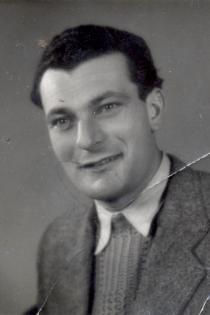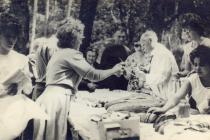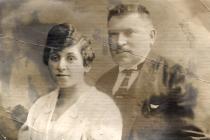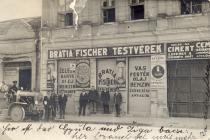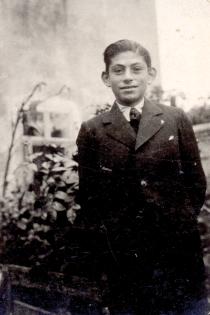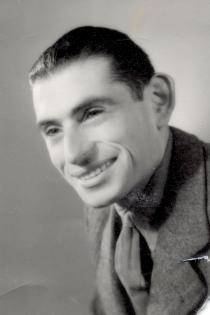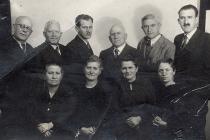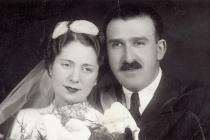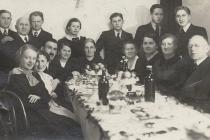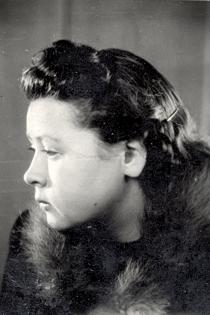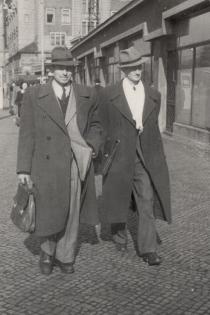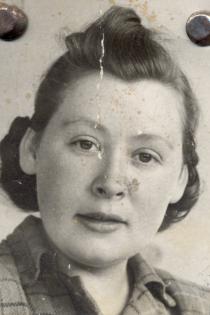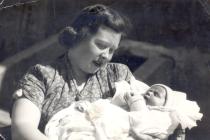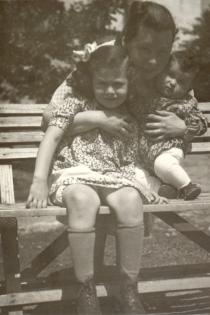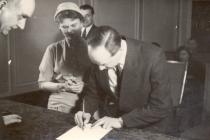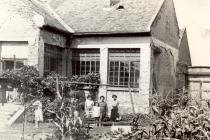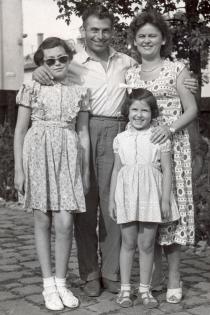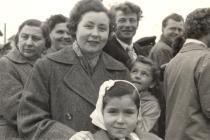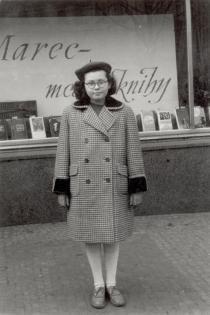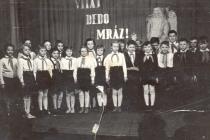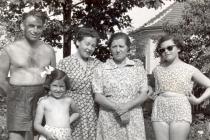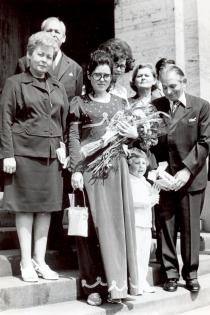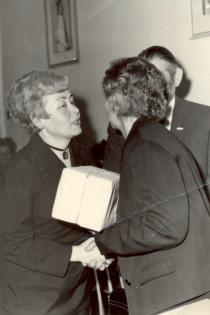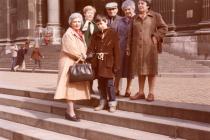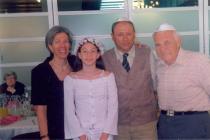This is a picture of the Stern family. The man with the glasses standing on the left is my father, Andor Stern. Standing beside my father is Uncle Ignac (Stern). The fourth from the left is Uncle Sandor (Stern), and beside him is Uncle Arpad. On the right is my sister's husband, Erno.
Sitting on the left is Aunt Jozefina (Berko), sitting beside her is Aunt Blanka (Haasz). Third from the left is my cousin Bozsi. None of them survived. The photograph was taken in Lucenec in 1938.
My father was one of six children. Three boys: Ignac, Sandor and Andor, and three girls: Blanka, Regina and Jozefina.
Ignac Stern was married twice. I didn't know his first wife. The second one was named Licike Stern, née Braun. Aunt Licike was my mother's sister. Uncle Ignac had three children from his first marriage. They all lived together in the Hungarian town of Miskolc. The boys were named Bela and Jozsef. In our family we called Jozsef Jozska. The daughter's name was Ilona, or familiarly Ilonka. Before the war the boys graduated from university. Both of them worked as engineers. Ilonka was a secretary. Uncle Ignac didn't have any children with his second wife. Uncle Ignac had a workshop where they sewed bedding and things like that. He was my father's oldest brother. He was a beautiful person with white, curly hair. They murdered this entire family during the Holocaust. None of them survived.
The wife of my father's second brother, Sandor Stern, was named Gizella Stern, née Sacher. They were childless. Sandor was a partner in the Sachers? store in Lucenec. Both were murdered during the Holocaust.
The next boy in line was my father, Andor Stern. His wife, that is, my mother, was named Ilonka Stern, née Braun. My father was the deputy director of a distillery named ?Trecséni borovicska és lik?rgyár.? We lived on just his salary, as my mother was very ill and couldn't work. During the war, the distillery for which he worked fell to the Slovak State and our town to Hungary. So when Lucenec fell to Hungary, my father had to leave his work. He opened a small store where he sold enameled pots. When we fell to the Hungarians, our situation in life got much worse. During the time of the first Czechoslovak Republic life for people in our town had been better. Hungary was poor compared to Czechoslovakia.
My father's oldest sister was named Blanka Haasz, née Stern. She married Mr. Haasz, who owned a glass shop. They had a son, Imrich. Around 1940 or 1941, Imrich was beaten up in the street by Nyilasovites. They sent him home, all beaten up, but he died as a result of his wounds. Imrich Haasz made a living as a writer. He wrote in Hungarian. When he was dying, the only one he allowed to be by his side was my older brother, Sandor Stern. My brother was holding his hand when he died.
The last of my father's sisters was Jozefina Berko. Her husband died at the front during World War I. Aunt Jozefina was supported by my father. She earned money by sewing aprons at home. She also embroidered and crocheted. She had three daughters: Bozsi, Magda, Lili and one son: Sandor. Sandor Berko worked as a writer and translator. He translated Czech poets into Hungarian, for example Jiri Wolker. He wrote several books, like for example: ?Az ördög köpenyében? [?In The Devil's Frock?]. Even today, literary critics rank this work among the top Hungarian works of authors writing in the Hungarian language living in Slovakia. Sandor was murdered during the Holocaust along with the rest of his family.

